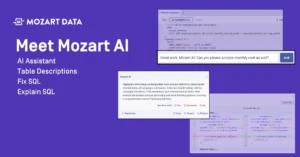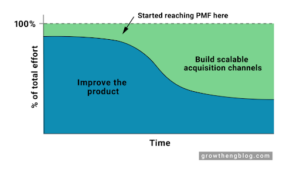If you’re not sure the right time to hire a data analyst, we recommend you check out our blog on the topic. But if you’re ready to seriously consider hiring someone for the role, it’s important to make sure you’re prepared to find the right analyst for your team.

Should you hire for experience or potential?
For start-ups, hiring almost always involves the question of choosing to hire for experience vs. potential. Should you hire someone more senior who can fill in things you don’t understand? Or, should you hire the junior candidate who can learn from you or whom you place under a senior manager later on?
The realities of experience, the momentum of potential


There can be huge returns when you bet on someone junior who is ambitious and determined. Many best practices or even skills, like SQL, can be learned or improved quickly in the first 30 to 90 days on the job. Inexperienced candidates often have adjacent training and have learned analytical rigor in a different setting. Or, they may have developed an aptitude for picking up concepts quickly through a bootcamp or self-paced study.

Senior-level candidates can bring valuable accountability and immediate use-case experience to the role. They typically get off the ground quickly and can spin up a team or process from nothing. It takes longer to source a more senior candidate, and let’s face it — they’re more expensive. For most start-ups, you can’t afford for your early hires to only be managers and not be individual contributors, so you’ll want to be sure a senior candidate is a doer.
One of the most common pitfalls in hiring experienced candidates is assuming that an individual has good communication skills and problem-solving aptitude because of their prestigious education or other impressive credentials. Senior candidates can still have skill gaps, which you can determine if you ask them the same questions that you ask more junior candidates.

Finding quality candidates
Prioritize aptitude and attitude over industry experience
At the beginning of a search, hire for ambition and aptitude — not context. When you’re sourcing candidates, don’t make the common mistake of thinking that context is vital to the job of a data analyst. Data analysis is often done independently of context. So if you think you need a data analyst who has experience in your industry, flip your perspective. Instead, search for candidates who have experience handling the size of data you’ll need them to handle.
Entering the candidate search process with a deliberate strategy is very important if the goal is to save time and money. Whenever possible, decisions about what type of candidate is desired, and the nature of the role, should be made in advance. Here’s why:
-
Interviewing experienced and less experienced candidates simultaneously to feel out potential options can be tempting. It also opens the door to further debate about decisions that could have already been made, delaying the process.
-
Skilled analytical professionals are in high demand. An unnecessarily lengthy process while decisions are being made internally increases the chances that excellent candidates become unavailable.
-
Think about team dynamics and candidate fit before the interview process. The right candidate can fill in gaps, complement existing strengths, and add diversity of thought as they hit the ground running.
Expand your search terms and places
When you’re searching for candidates, of course you’re going to look for traditional job titles — but don’t overlook candidates with data-adjacent careers, like business ops or banking.
Also search for candidates with quantitative backgrounds, including people who have done a lot of work in Excel or Google Sheets. They may not have held the title of data analyst, data scientist, or analytics engineer, but they were their company’s go-to person for data.
LinkedIn is an obvious source to begin looking for candidates, and it’s definitely the right place to start. It will also give you a sense of who else is recruiting for data analysts and how they’re describing open positions.
Beyond formal job postings, you can use LinkedIn to activate your network through a personal post that puts out the signal you’re looking for candidates. Many people find that’s all it takes to hear from dozens of qualified candidates. Indeed is the next obvious place to source candidates.
Junior and senior data analyst candidates can be found by subscribing to email lists and newsletters, and through the job placement departments of data and analytics bootcamps.
Searching for Slack communities can uncover groups — like Great Expectations, or Locally Optimistic — where data analysts hang out and talk to each other.
And last, but certainly not least, don’t forget to tap into your network. A trusted peer may know someone from a previous role who stands out as a data-oriented problem solver. This tends to be more suitable if you’re looking to hire a more experienced candidate. But if you successfully tap into your network, you’ll cut down on the time and costs it takes to find the right candidates.
To learn more about hiring a data analyst, check out our eBook, The Start-up’s Playbook to Hiring Your First Data Analyst.


